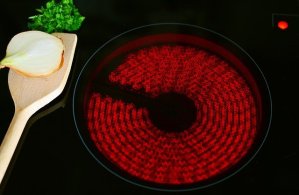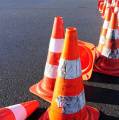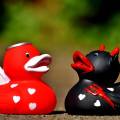Checking & OCD: Part 1 (Checking for Safety)

Checking-related OCD takes innumerable forms, and includes checks for safety, understanding, and mistakes.
Compulsive checking often begins innocently enough. One check here, two checks there…
But OCD’s greed knows no bounds.
What starts out as a simple check “just to make sure” eventually spirals into disabling OCD doubt that can come to predominate innumerable situations and scenarios.
Checking behaviors often emerge in situations in which “being irresponsible” might result in catastrophic outcomes, guilt, anxiety, or regret. OCD-related checking is usually driven by a need to obtain absolute certainty that nothing bad will happen. Compulsive checking is typically harder to control in “high stakes” scenarios and in situations in which you perceive that you have personal responsibility for the outcome.
Unfortunately, at least some degree of personal responsibility is present in most situations. Moreover, many people with OCD often feel that safety is tenuous or that disasters are lurking just one mistake away. Consequently, people with severe checking-related OCD may experience very little solace in their day-to-day lives.
Compulsive checking behaviors are probably the most diverse of all OCD rituals. Variations in checking-related behaviors dominate in most forms of OCD, even types of OCD that you might not necessarily consider checking-related variants of the disorder (e.g., hit-and-run OCD, scrupulosity, perfectionism, HOCD, other sexual obsessions). In this multi-part post, we’ll talk about some of the goals of checking and the different types of situations in which checking-related symptoms are present. We’ll begin by discussing OCD checking compulsions related to safety/danger.
OCD Checking for Safety/Danger
When people think of checking-related OCD, they most often think of situations that involve issues of potential danger. People who check for safety may check locks, stoves, light switches, or virtually any appliance or item with an electrical cord. Other common household items that are commonly checked include toasters, washing machines, dryers, ovens, curling irons, coffee machines, computers, televisions, candles, and fireplaces.
Thoughts that often drive these types of compulsive OCD checking behaviors are fears of fires, which may destroy homes or result in injury or death. Some individuals with anxiety about safety issues have very restricted, specific fears. For example, some individuals fear that their “careless” behavior will result in the death of a baby or a beloved pet.
Some people with safety-related OCD think, “If I have a thought and don’t take preventative action, then that’s almost as ‘bad’ as directly causing the feared outcome myself.” Others think, “If I have a thought and don’t do whatever I can to eliminate the threat, that must mean that deep down I want this bad thing to happen.”
Maladaptive thoughts like these make it very difficult to overcome anxiety and resist or limit checking behaviors.
Checking for safety may also be driven by fears of crime, theft, violence, or vandalism. These checkers may check locks, gates, windows, doors, garage doors, and other household entry points before leaving the house or going to bed. Often, the fear is that an intruder will enter the house via an unlocked door or window, which will result in murder, rape, or another dangerous situation. Upon returning home, individuals with this fear will often look in closets, under beds, behind doors, in basements, and in other “hiding places” to make sure that a criminal has not entered the home. These checking rituals may span minutes or hours; however, if left untreated, these rituals typically increase in complexity and length.
Types of Checking Behaviors for Danger/Safety
Compulsive checking behaviors are diverse in form and function. Specific OCD checks may focus on whether electrical appliances are “off”, whether they’ve been unplugged, or whether their electrical cords are free from damage. Ironically, some individuals with OCD may inspect cords for signs of damage or fraying so frequently that they cause these items to wear out more quickly.
Rituals may involve visually inspecting items or turning these items on or off repeatedly until it “feels right.” Similarly, doors may be locked and unlocked multiple times in accordance with these “not just right” feelings. Compulsions are also sometimes driven by lucky or unlucky numbers, in that the individual may fear that checking something the “wrong” number of times may somehow affect the probability that the dreaded situation or event will occur.
Checking behaviors related to anxiety about potential danger often involve a combination of checking visual cues (does the item’s dial look like it’s in the off position?), auditory cues (did I hear it click “right?”), and tactile cues (did I feel it click “right?”). Certain individuals may also engage in checking compulsions related to odors or smells (olfactory checking). These individuals may have sniffing rituals used to detect dangerous smells (e.g., the odor of natural gas, the smell of smoke or fire). Similarly, some individuals have tasting/licking rituals used to determine if one’s food or drink has become tainted/poisoned. If any of these factors are ambiguous or if the person gets distracted while checking, the behavior is typically repeated.
Objects that require regular use or maintenance can be especially distressing for individuals who check. Some individuals have a difficult time removing lint from their clothes dryer (e.g., What if I missed some lint or a small piece of lint has fallen behind the dryer?). Other individuals have similar fears relating to coffee machine cleaning and maintenance (e.g., What if I didn’t remove the coffee filter properly and it starts a fire?). Another common stressful situation involves checking to make sure that your car’s gear is in “Park” before leaving your vehicle.
Some individuals may compulsively check the placement of objects relative to other objects. They may be concerned about the proximity of appliances to paper, curtains, furniture, or other flammable objects. These individuals may have rituals that involve moving or adjusting the positions of these objects. Compulsions can become particularly time-consuming in multi-member households (or in households with children), in which the individual with OCD feels responsible for neutralizing threats that may arise due to the behavior of others.
One of the things that is so frustrating for individuals with these types of OCD symptoms is that the checker may consider these behaviors illogical, but may still feel compelled to check anyway. Individuals may have gas fireplaces that are never used, and yet they feel urges to check these items whenever leaving the house. Paradoxically, these checks may increase the likelihood that these items will be left in the “on” position.
Compulsive checking can affect individuals at any age, but in my Palm Beach, Florida, psychological practice, I often see these fears develop quite early in children and teens. These checking behaviors may be obvious to all family members (parents, siblings), but sometimes the child or teen may engage in these behaviors secretly. Sometimes checking behaviors are part of a larger bedtime ritual, or a regular ritual that precedes leaving the household (e.g., before leaving for school/work). Common checks include returning home to make sure that the garage door is shut and that doors have been locked properly. Individuals may repeat these checks multiple times or may leave work/school to return home “just to make sure.” If one is leaving the household for a longer interval (e.g., if one is going on vacation), these compulsions may be even more exaggerated and time-consuming.
Checking for safety does not only involve manual checks of objects. Checking also encompasses other reassurance-seeking behaviors designed to see if loved ones are safe. For example, checks also include phone calls or texts to family members to make sure they’re okay. Checks can be overt (“Are you okay?”) or information-based (“When will you be home tonight?”). Feared outcomes may focus on disasters, crimes (murder, rape, assault, abduction, muggings), accidents (car accidents, plane crashes), injuries (falling down the stairs), or other dangerous situations.
Subsequent posts will discuss compulsive checking in different contexts. Topics addressed will include checking to prevent loss, checking to prevent mistakes, checking for understanding or comprehension, checking your own morality, and checking your relationships with others. Read part 2 which focuses on mental checking.
Questions? Comments? Do you have OCD and have rituals related to checking for safety/danger? Sound off below.
Want Updates about New Content?
Follow Me!
Follow @drstevenseay












You have done an excellent job describing checking–a lot of this is me exactly! I used to think that checking was one of my “lesser” OCD symptoms, but it actually causes a lot of distress. I am just realizing how other symptoms–like scrupulosity–involve checking.
I am doing the Brain Lock method of reattribute and refocus, and I’m having some success. I’ve spent a lot of my time staring at lamps to make sure they’re really off and looking at stove buttons from different angles and listening for the right click.
Thank you for great information, and I look forward to the other posts.
I’m glad it resonated with you! I’ll be interested to hear what you think about some of the other parts when they’re up. I’m going to delve more into mental checking, checking related to relationships, etc.
My brother is “slow” and also has OCD. He checks everything, makes sure things are lined up properly on the shelf or floor, and balances his checkbook for hours, among other things. The doorknob on the entry to his area has come apart twice so far in five years from him locking and relocking it. Is there a brand or style that holds up better to this kind of abuse?
Hi Jen,
It sounds like he’s really struggling. Since OCD is treatable, you might try to delicately point him in the direction of resources that might help him get a better handle on his symptoms. If there’s a local support group in your area, that might be a good place to start.
Good luck!
I used to compulsively check locks before going to bed. I’d be like a yo-yo going up and down the stairs within a few minutes of my last check. No matter how many times I’d check, there would still be uncertainty as to whether I remembered it right.
I would do similar things whenever I had to go out. I would check patio door, windows, stove and then front door. Eventually after multiple checks, i would still worry but know that i have already checked and i have to go.
However, after a great deal of effort, I can usually remember and only do one primary check these days. Sometimes it gets the best of me but now i am focusing on overcoming the driving ocd.
Ive OCD.Im working in lab.when I want to left my lab I checked 2,3,4… timed (light,oven,lock,gass).I’m afraid from explosion.I’m afraid fome …. and My colleagues have understood my problem. They make fun of me .what should I do?plz help me.
A couple of months after my dad died and when I was 8 i was constantly checking if my bathroom Tap was off, if my bedroom light was off, if the TV was off and after a while it went away. Now im 12 and its come back and its worse thn ever im frequently checking if my shower, the fridge, my straitiner, my bathroom tap, the laundry tap, the fan in my bathroom, every light, powers points and making sure that there off but im not checking them once im checking them heaps of times and the weird thing is i have too check them an odd amount of times and its driving me mad im starting to think there’s no reason too live. I think I might have OCD but im not sure and i want to ask my parents to talk to them about it but im scared of what they might say do you have any advice?